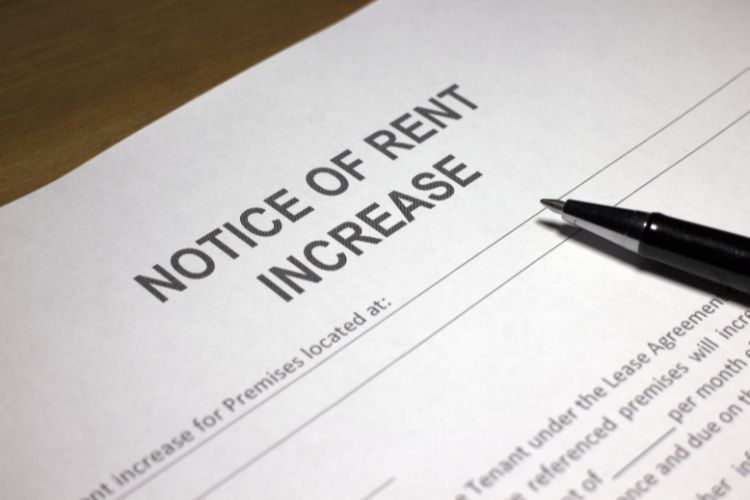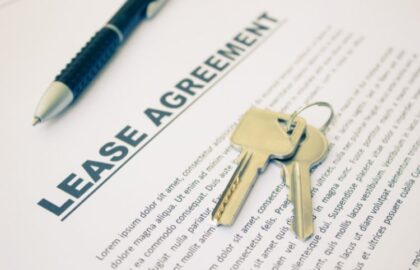
As a tenant in Queensland, you may be wondering about your rights when it comes to rent increases. How much can your landlord raise the rent, and how often?
In this article, we’ll explore the rules and regulations around rental increases in the Queensland property market. We’ll cover topics like the maximum rent hike allowed, the notice period required, and how to handle excessive or frequent rent raises.
Whether you’re a new renter or have been in your current property for years, understanding your rights as a tenant and your property management is crucial. Let’s dive in and get you the information you need.
How Often Can Landlords Increase Rent in Queensland?
As of July 1, 2023, new legislation in Queensland limits rent increases to once every 12 months for both new and existing tenancies.
This means that your landlord can only raise the rent on your rental property once a year, and they must provide the required notice period before implementing the increase.
The frequency of rent increases applies for the duration of your tenancy, even if there is a change in property ownership or management.
While there is no specific limit on the amount your landlord can increase the rent, you do have the right to dispute an excessive increase through the Queensland Civil and Administrative Tribunal (QCAT). QCAT will consider various factors, such as the current market conditions, when determining if a rent hike is justified.
If you’re on a fixed-term lease, your rent can only be increased at the end of the agreement if both you and your landlord agree to it.
However, the increase must still adhere to the 12-month rule. For periodic or rolling tenancies, your landlord can increase the rent with the proper notice period (e.g. 2 months for general tenancy).

Can Tenants Dispute Rent Increases in Queensland?
Rent disputes in Queensland
While rent increases are now limited to once every 12 months under new legislation, tenants in Queensland do have the right to dispute excessive rent hikes.
In fact, rent disputes are expected to make up less than 2% of the Residential Tenancy Authority’s workload, indicating that most landlords are adhering to the rules.
Disputing Rent Increases
If you believe your landlord has increased the rent by an unreasonable amount, you can first try to discuss the issue with them directly.
If an agreement cannot be reached, you have the option to apply to the Queensland Civil and Administrative Tribunal (QCAT) to have the rent increase reviewed.
QCAT will consider a range of factors when determining if a rent increase is excessive, including current market rents, the condition of the property, and the length of your tenancy. They have the authority to either approve the increase, reduce it, or disallow it altogether.
It’s important to note that if your rent is increased, your landlord may also be able to increase your bond amount accordingly, but they must follow the proper notice and payment procedures.
Advocacy and Housing Reforms
Advocacy groups in Queensland are urging the government to focus on ensuring access to affordable housing for all residents.
With factors like high population growth, the rise of short-term rentals, and increasing interest rates and inflation putting pressure on the rental market, reforms limiting rent increases and providing more secure tenancies may be necessary.
What Steps Can Tenants Take if They Believe a Rent Increase is Excessive?
If you receive a rent increase notice from your landlord and believe the amount is excessive, there are several steps you can take:
- Review your lease agreement: Understand the terms regarding rent increases, including your landlord’s obligations, the required advance notice, and any percentage limits on increases.
- Communicate with your landlord: Politely enquire about the reasons for the rent hike and try to negotiate a more reasonable amount. Open communication may help you reach a mutually acceptable solution.
- Explore alternatives: If the rent increase is unmanageable, consider finding a roommate, downsizing to a smaller unit, or looking for a more affordable rental property. Be proactive in finding a solution that fits your budget.
- Seek legal advice: If you believe the rent increase is unlawful or violates your lease agreement, contact a tenant rights organisation or an attorney specialising in landlord-tenant law. They can help you understand your rights and options for recourse.
- Apply to challenge the rent increase: If you and your landlord cannot agree, you can apply to the Queensland Civil and Administrative Tribunal (QCAT) to have the increase reviewed. This process is free, and you must apply before the rent increase is due to take effect.
For Landlords: How to Notify Tenants of Rent Increase
As a landlord in Queensland, it’s important to follow the proper procedures when notifying your tenants of a rent increase. Here’s a detailed guide on how to do it:
Check the Legalities
Before raising the rent, make sure you review the relevant state laws, local regulations, and the terms of your rental agreement. This will ensure your rent increase is legal and complies with any rent control or stabilisation laws.
Provide Adequate Notice

Queensland law requires landlords to give their tenants at least 2 months’ notice for a rent increase in a general tenancy, or 4 weeks’ notice for a rent increase in a rooming accommodation. Be sure to adhere to these timeframes.
Include the Necessary Details
Your rent increase notice should include the following information:
- The date of the notice
- Your name and address as the property manager or landlord
- The tenant’s name and address
- The last day of the current lease
- The amount of the rent increase
- The effective date of the increase
- The timeframe the tenant has to accept the increase or reject the lease renewal
Use a Rent Increase Letter Template
To ensure you cover all the required elements, use a standardised rent increase letter template. This will help you create a well-written, professional notice that clearly communicates the details to your tenant.
Communicate Openly
When notifying your tenant of the rent increase, be sure to explain the reasons behind it, such as increased costs, added amenities, or changes in property taxes. Encourage your tenant to reach out if they have any concerns or questions about the increase.
See also whether a landlord can contact a tenant directly.
Summary
New Queensland legislation limits rent increases to once every 12 months. Tenants can dispute excessive hikes, but most landlords follow the rules. Landlords must provide adequate notice and detail when increasing rent, including the reasons. Both parties should communicate openly to reach a mutually agreeable solution.







